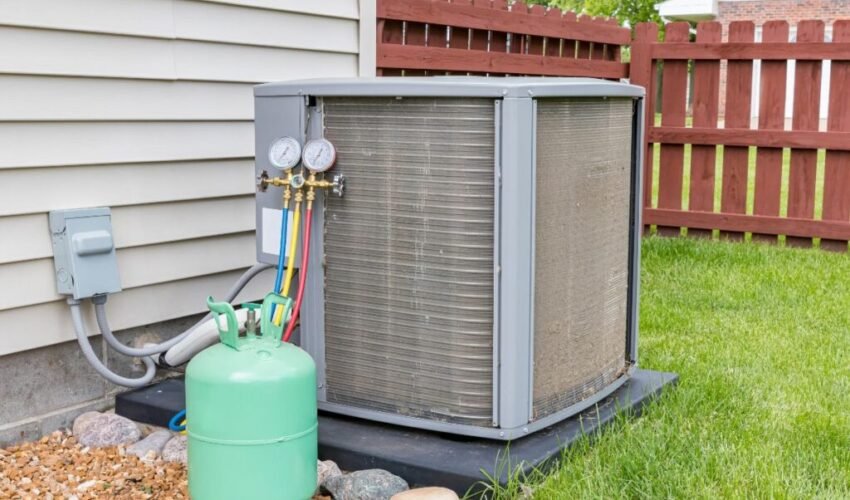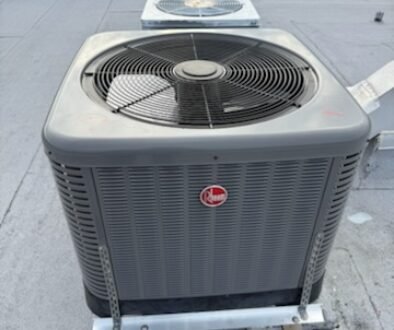What You Need to Know About Using Freon for AC

Published July 11th, 2023
When an air conditioning system stops working, most people chuck it down to a lack of freon. But what exactly is a freon? Most importantly, how do you use freon for AC?
In this post, we’ll answer all those questions and more. Whether you’re just genuinely curious about freon or are looking to add freon to your AC yourself, here’s a quick guide for you.
How Does Freon Work?
Freon is not actually a type of coolant. Rather, it’s a trademarked brand name for a coolant made by the DuPont Corporation. But since it’s a very popular brand, similar types of coolants are also commonly called freon.
Made of chlorine, fluorine, and carbon atoms, freon is non-flammable, non-toxic, and has a low boiling point. This makes it an ideal coolant for AC systems.
It works by absorbing heat and humidity before expelling them out. This process keeps your room temperature constant, creating a cooling effect.
Left alone, freon could last in your airconditioner forever. So, in theory, you shouldn’t need a freon refill. However, over time, air conditioners can leak leading to a loss in freon.
How to Tell If Your AC Needs Freon
Contrary to popular belief, not all air conditioning systems use freon. Yes, all AC systems use a coolant. But as mentioned, freon is just a brand name. There are other types of coolants that AC manufacturers use.
So before buying freon and adding it to your AC unit, you need to first make sure it’s using freon. Due to government restrictions, modern HVAC systems no longer rely on freon. AC systems made since 2010 uses a type of refrigerant called Puron, a more energy-efficient alternative.
Besides, recharging your AC with freon isn’t something you do on a whim. You don’t want to waste money if it’s not necessary, so it’s important that you know when exactly you need to add freon.
If your HVAC unit is indeed using freon, common signs that tell you it’s time to recharge your unit include:
- warm air coming from the vents – it could be an indication that there’s not enough freon circulating in the system
- noises like hissing – this could also mean that there’s a problem with the freon levels
- small bubbles coming from the unit – this could indicate a leaking fluid line or a compressor issue
- if there is an ice buildup in or around the unit itself – when freon levels are low, the coils containing it gets too cold, leading to ice buildup
If you’re seeing any of these signs, it’s best to call in an HVAC technician who can professionally assess your situation and recommend a solution. Don’t try recharging your AC by yourself – it requires knowledge and expertise! Doing so could even put your safety at risk.

Should You Add Freon to Your AC Yourself?
As I’ve said, adding freon to your AC is not something you can DIY. It requires experience and expertise. Even if you know a thing about AC systems, it may not be enough to properly recharge your unit.
Besides, if you’re searching the web for guides on how to use freon for AC, it’s probably not the best idea to DIY this process.
If you don’t want to harm your AC system any further, better contact an HVAC technician in your area for a thorough inspection and professional advice.
They’ll be able to tell if there’s a freon issue right away. Plus, they can easily determine what type of repairs are necessary to get your AC up and running again.
Don’t delay in getting help. The sooner you address the problem with freon, the better chance you have of avoiding major breakdowns down the road.

This Content Is Fact Checked
This content has undergone thorough fact-checking by our team of internal experts. Gain further insight into the editorial standards upheld on our website here.
South Florida HVAC Professionals
Snowflakes Air Conditioning has been providing professional HVAC services for over 10 years. We are committed to keeping your air conditioner running smoothly all year round. Our experienced technicians can handle anything from AC repair to sales and AC installation. Whether it’s time for an upgrade or just regular upkeep, we are a name you can trust for your HVAC needs. Contact us today for more information.

About The Author
Judy Ponio is a professional writer for the Snowflakes Air Conditioning website and blog. Her vast experience crafting helpful articles on topics related to HVAC will help you make better decisions for your home or business.



